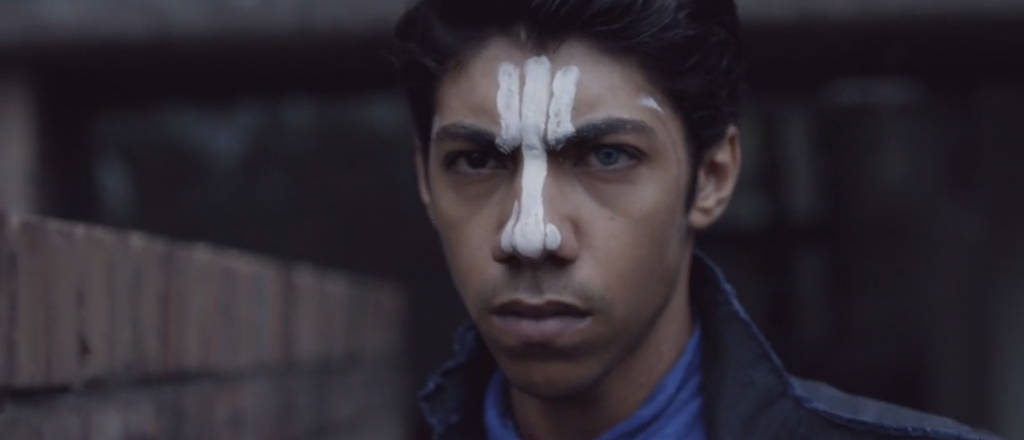
Film Matters: Please tell us about your article that is being published in Film Matters.
Jade Courchesne: This article discusses the Australian television drama, Cleverman, a show that blends together science fiction, conventions of the superhero genre and influences from Indigenous storytelling to yield an honest critique of modern Australian politics. Tackling Australia’s documented history of Indigenous maltreatment while weaving in elements of the Dreaming, the essay dissects how Cleverman depicts the legacy of intercultural and intergenerational trauma inflicted upon Indigenous populations, provoking a discourse on how government initiatives continue to have serious, negative repercussions on marginalized communities.
FM: What research and/or methodologies do you incorporate in your article?
JC: I use a combination of academic and popular media sources, to make the article more accessible and approachable, while still offering up the perspectives of other scholars in the same field.
FM: Describe the original context for/when writing this article while an undergraduate student.
JC: I wrote this essay for a “television and seriality” course in my third year of undergrad (through remote learning!), where we watched Cleverman for the first time. I got excited to write the piece after reading about the extent to which the representation of marginalized communities mattered to the viewers of the show.
FM: How have your personal experiences shaped and influenced your writing?
JC: I have a keen interest in writing about experiences like mine — I have spent a large portion of my life being told to choose between identities (as someone who’s biracial), as if those identities could not exist in tandem with one another. I now study and write about diasporic cinema that portrays identities on the margins, and I look at how storytelling can complicate these figures on screen.
FM: What aspects of the writing process were most challenging? Why?
JC: Finding a balance between praise and critique is something I’ve always struggled with. I feel as though shows like these can always do better, but we should also appreciate them for the good that they do, as a cultural archive (of sorts).
FM: What do you enjoy most about your article?
JC: I like the part where I discuss how much research went into creating Cleverman. Griffen put a lot of effort into respecting his cultural heritage (talking to Elders, considering the Indigenous legends through many difference lenses) — I aspire to do the same in my writing.
FM: How has the Film Matters editorial and publication process impacted the development/evolution of your article?
JC: It’s definitely improved the final piece, in terms of organization and structure. I like the system with five reviewers — it gives the writer a lot of feedback to work with.
FM: What audience do you hope to reach with your Film Matters article and/or what impact do you hope it has on the field of film studies?
JC: I honestly hope more people watch the show, especially those outside of Australia! There’s not a lot of academic literature on it at the moment.
FM: How has your department and/or institution supported your work in film and media?
JC: My school faculty have supported my research from day one. I was encouraged to apply for scholarships, fellowships, and publication opportunities and most of them have panned out — I have them to thank for it.
FM: How has your faculty mentor fostered your advancement as a film scholar?
JC: She was my supervisor for an ambitious research project that took place over four months, and then supported me throughout my application process to grad school.
FM: What advice do you have for undergraduate film and media scholars?
JC: Read! There will never be a useless bit of information if you read — even the silly stuff usually comes in handy.
FM: What are your future plans?
JC: I’ll be in the Cinema and Media Studies Master’s in the fall (2022!). Beyond excited for that.
Author Biography
Jade Courchesne (郭舜婷) is a French Chinese Canadian graduating with a BAH in Film & Media Studies at Queen’s University in Kingston, Ontario. She’s interested in studying diasporic and transnational cinemas, with a focus on how racialized and queer identities interact with stereotypical images as seen on screen.







































